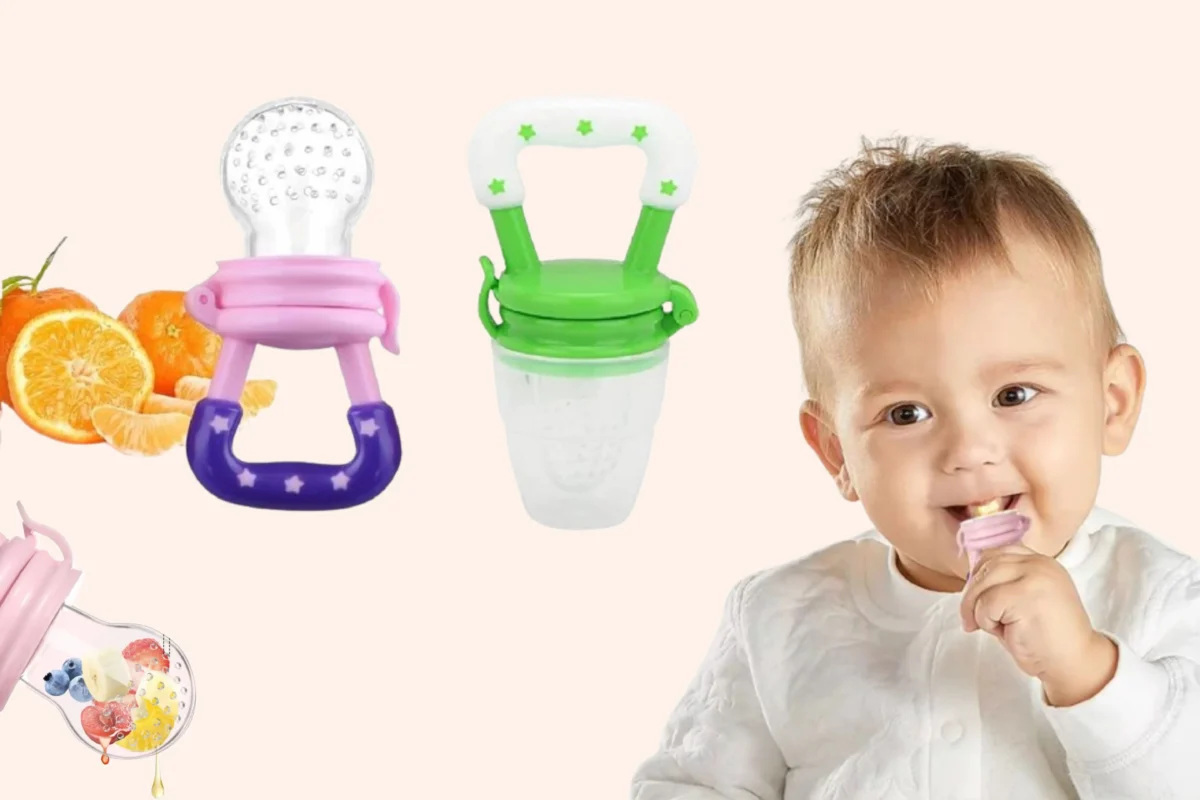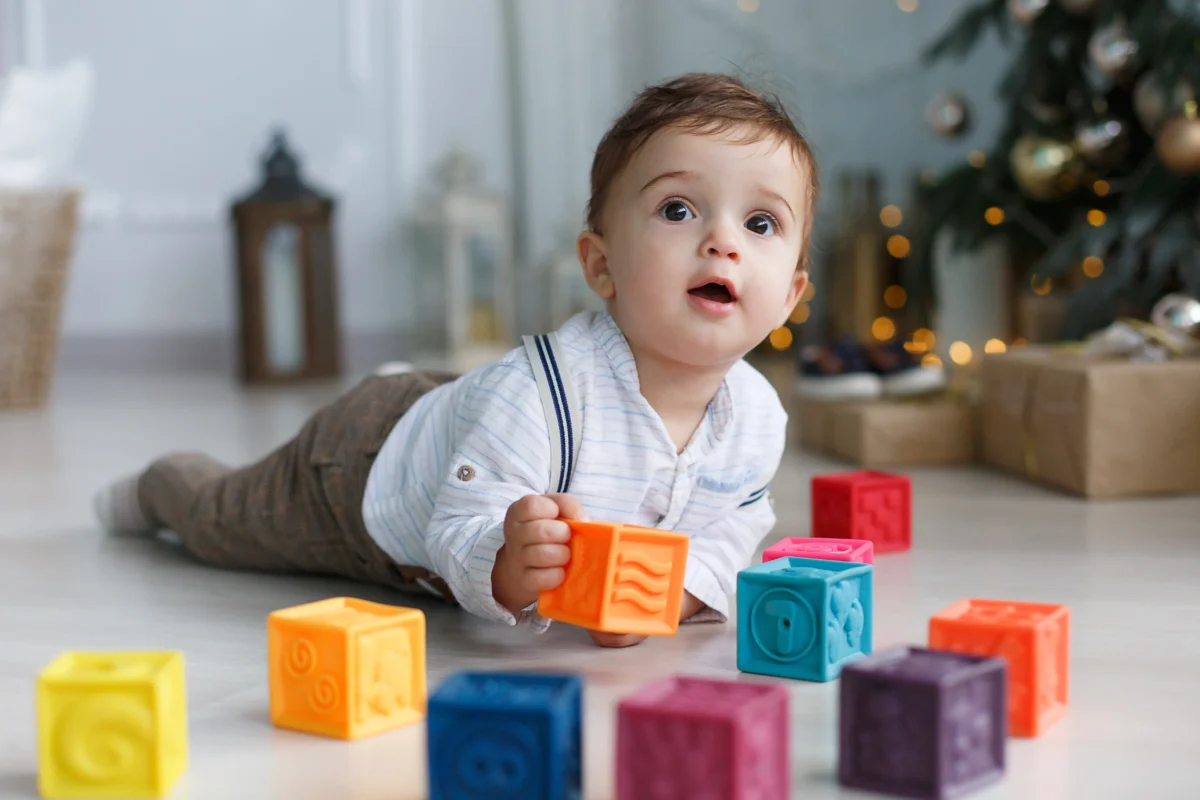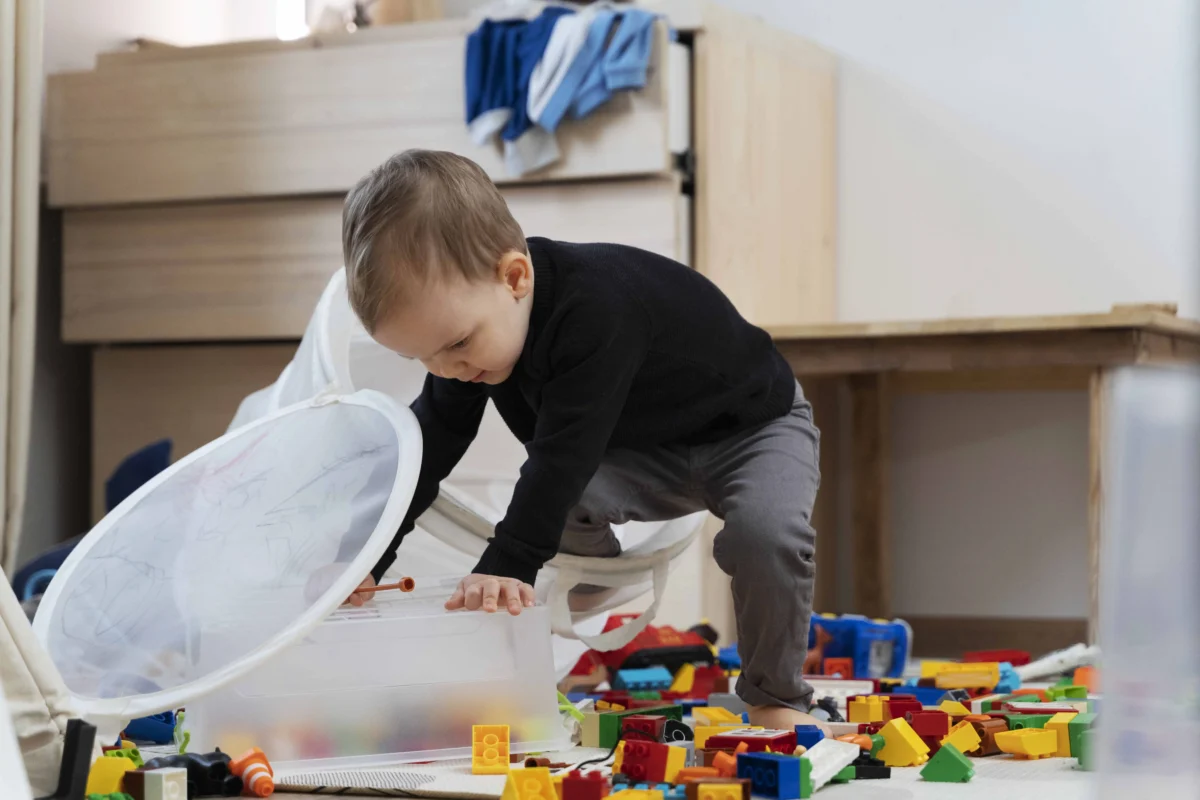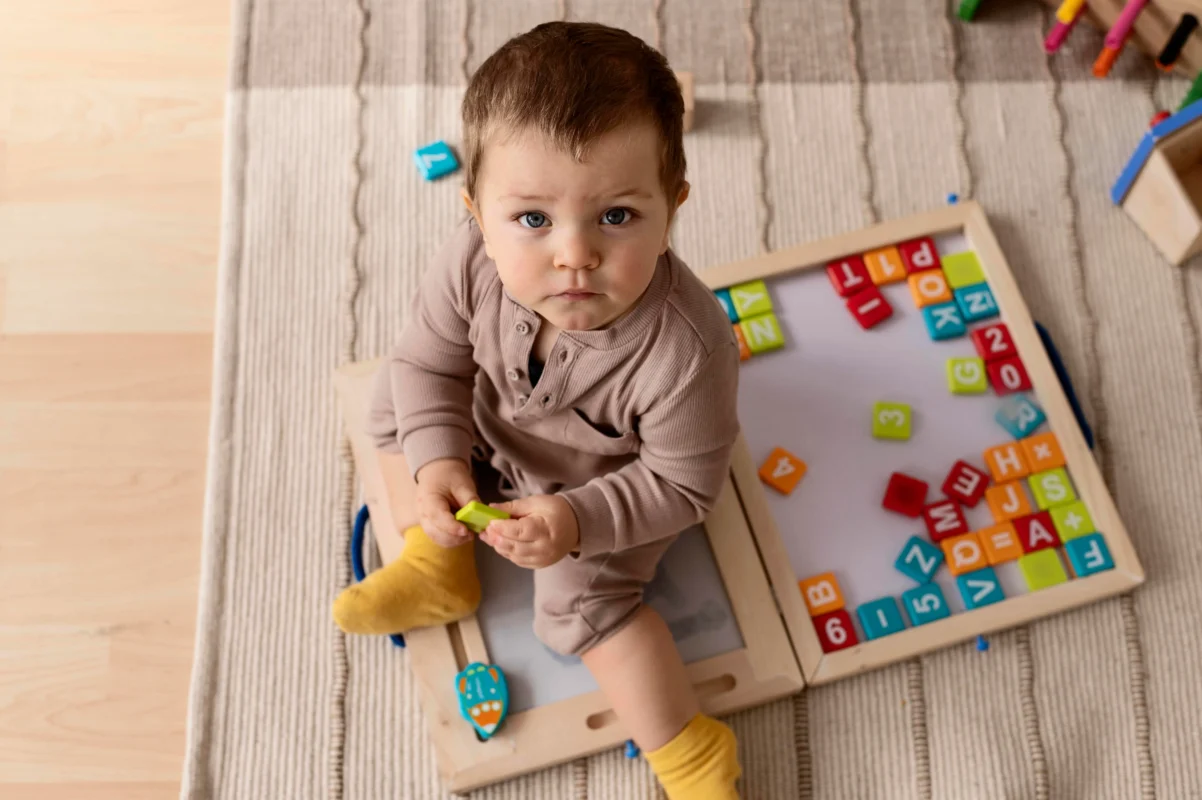Introduction for Baby’s First Year
Welcoming a new baby into your life is a joyous and transformative experience. The first year is a crucial period of growth and development, filled with milestones and challenges. Here’s a month-by-month care guide to help you navigate your baby’s first year with confidence and ease.
Month 1: Welcome to the World
- Feeding: Newborns need frequent feedings, typically every 2-3 hours. Breastfeeding or formula provides essential nutrients for growth. Watch for hunger cues like rooting, sucking motions, and fussiness.
- Sleep: Expect your baby to sleep 16-18 hours a day, often in short bursts. Establish a safe sleep environment with a firm mattress and no loose bedding.
- Bonding: Skin-to-skin contact, gentle rocking, and talking to your baby help strengthen your bond. Respond promptly to their cries to build trust and security.
Month 2: Growing Stronger
- Development: Your baby will start to lift their head briefly during tummy time. This strengthens neck and shoulder muscles.
- Social Interaction: Smiles and cooing begin, signaling early social development. Encourage this by smiling and talking back to your baby.
- Routine: Establishing a feeding and sleeping routine can help both you and your baby. Consistency provides a sense of security.
Month 3: Becoming More Aware
- Physical Growth: Your baby will gain more control over their head and upper body. They may start to push up on their arms during tummy time.
- Communication: Expect more vocalizations and different cries for different needs. Pay attention to these sounds to better understand your baby’s needs.
- Playtime: Introduce soft toys and gentle play to stimulate their senses. Mobiles, rattles, and tummy time mats are great choices.
Month 4: Engaging the World
- Milestones: Your baby may start rolling over from tummy to back. Always supervise them on elevated surfaces to prevent falls.
- Interaction: Increased interest in surroundings; respond to their babbling and smiles. Sing songs, read books, and play peekaboo to enhance their cognitive development.
- Health: Keep up with regular pediatrician check-ups and vaccinations. Discuss any concerns with your doctor.
Month 5: Exploring Movements
- Motor Skills: Your baby might begin to sit with support and reach for objects. Offer toys within reach to encourage hand-eye coordination.
- Nutrition: Continue breastfeeding or formula feeding; discuss introducing solids with your pediatrician. Some babies show readiness for solids around six months.
- Safety: Babyproof your home to ensure a safe environment for exploring. Cover outlets, secure furniture, and remove small objects that could be choking hazards.
Month 6: Half-Year Milestones
- Development: Sitting up without support and starting to crawl. Place toys just out of reach to encourage movement.
- Eating: Introduce pureed foods and continue milk feedings. Start with single-ingredient foods and wait a few days before introducing new ones to monitor for allergies.
- Play: Provide toys that encourage movement and exploration. Blocks, soft balls, and activity centers are excellent choices.
Month 7: Curiosity and Learning
- Mobility: Crawling becomes more coordinated; baby may attempt to stand with support. Ensure the floor is safe and free from sharp objects.
- Language: Babbling with more varied sounds. Read to your baby daily and encourage vocalization.
- Interaction: Encourage learning with books, music, and interactive play. Simple games like pat-a-cake can be fun and educational.
Month 8: Growing Independence
- Skills: Improved hand-eye coordination; picking up small objects with a pincer grasp. Offer finger foods to support this development.
- Social: Developing stranger anxiety; comfort and reassure your baby. Introduce new people gradually and stay close to provide security.
- Routine: Maintain consistent feeding and sleeping schedules. Consistency helps your baby feel secure and understand what to expect.
Month 9: Active Exploration
- Movement: Cruising along furniture and possibly taking first steps. Provide sturdy furniture for support and remove any hazards.
- Communication: Understanding simple words and gestures. Use simple, clear language and gestures to communicate.
- Engagement: Play games like peekaboo and introduce more complex toys. Sorting toys and stacking blocks can enhance cognitive skills.
Month 10: Developing Skills
- Independence: Greater ability to feed themselves finger foods. Offer a variety of healthy options and let them explore different textures and flavors.
- Socialization: Imitating sounds and actions; more interactive play. Encourage playdates and interactions with other children.
- Learning: Encourage problem-solving with stackable toys and puzzles. Activities that challenge their thinking and coordination are beneficial.
Month 11: Nearing the First Year
- Mobility: Taking more confident steps; exploring more actively. Ensure your home is safe and child-friendly.
- Communication: Saying simple words like “mama” and “dada.” Encourage language development by talking to your baby often and responding to their attempts to communicate.
- Routine: Maintain structure but allow flexibility for exploration. Balance routine with opportunities for new experiences.
Month 12: Celebrating the First Year
- Milestones: First birthday! Walking, talking, and more independence. Celebrate your baby’s achievements with family and friends.
- Nutrition: Transition to whole milk if advised by your pediatrician; continue a balanced diet. Offer a variety of foods to ensure they receive necessary nutrients.
- Bonding: Celebrate achievements and enjoy quality time together. Reflect on the year’s journey and look forward to the milestones ahead.
The first year of your baby’s life is filled with incredible changes and development. By understanding each stage and providing the necessary care and support, you can help your baby thrive. Enjoy every moment of this remarkable journey!













